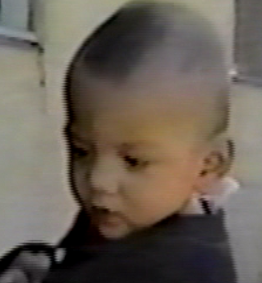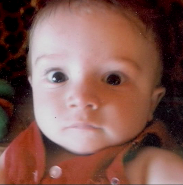Is it possible for a baby to be depressed?
 Many parents wonder if it is really possible for a baby to be depressed or to have anxiety, after all, he is just a baby. The truth is baby’s can become depressed and they can develop anxiety.
Many parents wonder if it is really possible for a baby to be depressed or to have anxiety, after all, he is just a baby. The truth is baby’s can become depressed and they can develop anxiety.
Many things play a part in a child developing anxiety or depression. Part of it may be genetic, part of it may be due to medical or physical problems. A part of it may also be related to the home environment including including family interactions.
 Babies who have an unstable environment (being involved in child protective services because of abuse, neglect, or some other reason) have a higher likelihood of developing depression or anxiety. Additionally, babies whose parents are struggling with depression, or anxiety, or some other mental health condition, also have a higher probability of developing similar symptoms. Since children are depended upon their care-givers to help them organize their feelings, when a care-giver is struggling organizing his or her own emotional state, he or she can’t effectively help organize the emotional state of their child. This may lead to the baby developing a state regulation problem; meaning that the baby may have a hard time learning to self-sooth.
Babies who have an unstable environment (being involved in child protective services because of abuse, neglect, or some other reason) have a higher likelihood of developing depression or anxiety. Additionally, babies whose parents are struggling with depression, or anxiety, or some other mental health condition, also have a higher probability of developing similar symptoms. Since children are depended upon their care-givers to help them organize their feelings, when a care-giver is struggling organizing his or her own emotional state, he or she can’t effectively help organize the emotional state of their child. This may lead to the baby developing a state regulation problem; meaning that the baby may have a hard time learning to self-sooth.
If the parent has experienced trauma in his or her life, especially early on in life, caring for a baby can trigger emotions that have been buried for a long time. These emotions can suddenly arise and make it difficult for the parent to be emotionally available for their child.
Parent-child Psychotherapy
Parent-child Psychotherapy that focuses on the relationship between the parent and the child can help both the parent and the child work through the emotions that are coming up in their interactions with each other.
Also, understanding a child’s needs from a developmental perspective, and having parents recognize their own emotional state and the emotional state of their child, can help parents meet their children’s needs.
Child and Family Therapist
Independent facilitator of the Circle of Security® curriculum.
